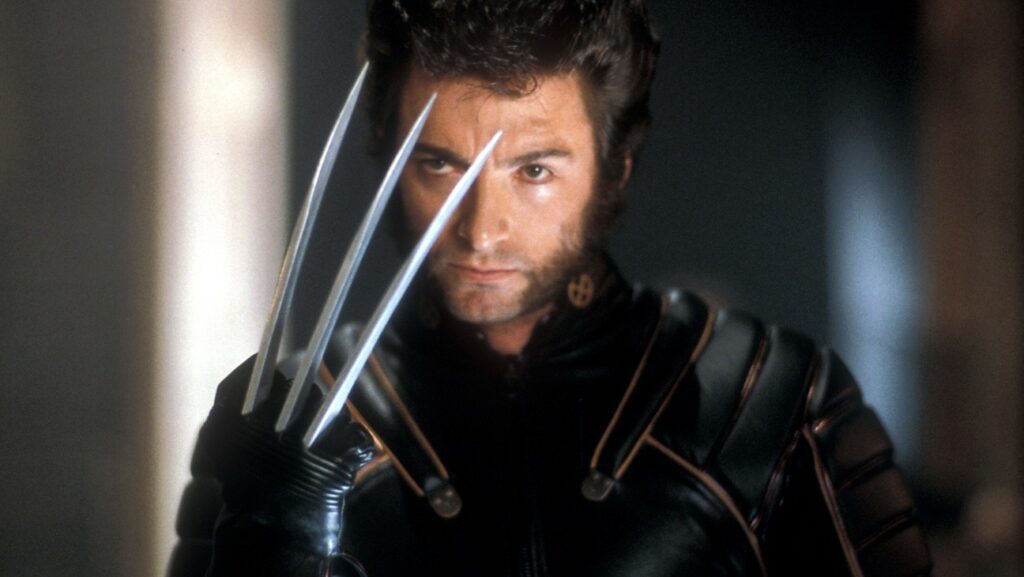It’s interesting to think back to a time when comic-book movies were less commonplace than they are now. Nowadays, the summer movie season is synonymous with superheroes – there were a total of ten superhero films released in 2019, four of which debuted in the summer (five if you want to count Hobbs and Shaw, which was basically one). They’re cash cows that audiences can’t seem to get enough of, so it’s no wonder studios want their hand in the cookie jar. But there was a time when comic-books were considered niche and nerdy, where someone spotted with a Marvel or DC strip in their backpack would immediately be typecast… At least until 2000’s X-Men came along and changed the game.

Up until that point, the only notorious X-Men adaptation was the animated series that ran in the 90s. While it was well received by fans, it didn’t necessarily break ground for Marvel’s dysfunctional family of mutants. The X-Men weren’t seen as particularly ‘cool’ – the sillier powers and costumes (here’s looking to you, Logan) weren’t exactly working in their favour. And the most successful comic-book movies at the time were Blade and… uh… Batman & Robin. So the bar wasn’t exactly set very high when Bryan Singer came in to make something more of Xavier and his chums. While it’s not exactly known why Fox took a risk on a more unconventional Marvel property (the film had a modest $75 million budget; the cast was fairly unknown; it was based on a lesser-known superhero franchise), we should count ourselves lucky that they did. The film’s worldwide gross of $296 million showed that there was an appetite for this genre if done well; it even paved the way for Sam Raimi and Christopher Nolan to come out with their own groundbreaking comic-book movies thereafter in Spider-Man and The Dark Knight trilogy.

X-Men was so popular because it took a niche property and made it relatable. How do you take an indestructible protagonist in yellow spandex with claws for a power and make him human? You make him a tragic warrior and put him in the real world. You take an unknown actor, a so-called ‘everyman’, and cast him as the audience’s surrogate into this narrative. Tim Burton’s Batman films had already showcased how authenticity, and the adoption of a dystopian air not too dissimilar to our own, worked well with audiences. Bryan Singer went a step further and took the world as we know it, with tangible and relatable issues, and dropped our heroes right into it. The world no longer echoed our own, it was our own. Audiences were just offered a new perspective. Even Ian McKellen’s Magneto resists becoming a pantomime villain and offers instead a sympathetic antagonist; the film opens in a concentration camp, setting up an unrelenting life of pain from an early age – a very interesting framing device for a film supposedly about the clear-cut “good” side versus the “bad” side. Erik Lehnsherr isn’t introduced as a supervillain, but as a boy suffering through a dark time that audiences know to be one of the greatest hardships endured by humankind. It’s real.

Batman and even Blade prided themselves on being “comic-book movies”; they were about the costumes, the cool abilities and the stylish action. While these components are important to the genre, Singer understood that they were embellishments rather than actual substance, and opted instead for a more character-driven X-Men about the personal struggles of the eponymous team. Rogue is having an identity crisis; Magneto’s issues are with the government; Xavier is trying to teach acceptance; even Logan’s story is about fitting in and falling in love. The supernatural, superhero-y aspect of the character’s lives is secondary to their very human problems, and that’s what made the film so easy to connect with. When the action did unfold, audiences were already invested in what was happening, so the film was able to lean into its comic-book sensibilities more effectively. When I think of X-Men, I am reminded of the great scenes shared by Logan and Rogue, rather than the fight between Mystique and Toad, or the riveting final conversation between Charles and Erik, rather than the Statue of Liberty set piece.

When I think of X-Men, I am reminded of the message of acceptance it teaches; it spoke to racial injustice, homophobia, transphobia, sexism, and provided was for a safe haven for everyone that ever felt alone – like the outcast mutants coming to Xavier’s school for the gifted, X-Men was our refuge from the world. Few films can really change the world; some try, and others have large impacts, but few movies can actually capture the voice of a generation and make something of that. I believe that X-Men is one of those films, whether it intended to be or not. Bryan Singer was the vanguard of the superhero genre, which is now the biggest genre there is. Raimi and Nolan’s trilogies, the MCU, even the DCEU would all likely look very different today if it wasn’t for Singer’s X-Men. Maybe comic-book properties in general would still be shunned if Singer hadn’t taught us to be accepting of people, culture, and superheroes through the lens of a great, human movie: 2000’s X-Men.

